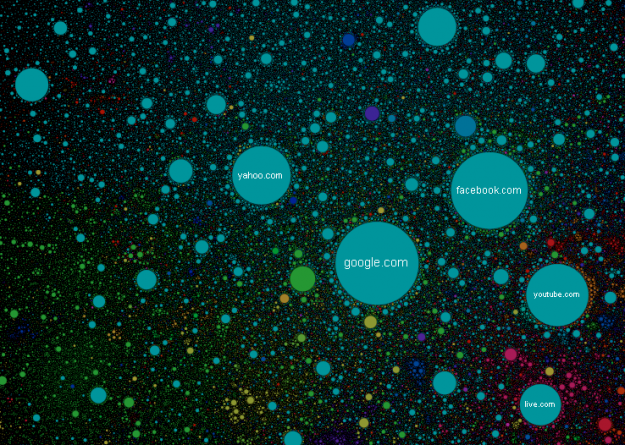 |
| map of the internet: source |
One of the assumptions I have made in my future vision, is that by 2040, the entire world will be virtually connected. Although some may argue that in third-world countries this is not going to happen, there is increasing evidence to support the fact that in many of these areas, although there has been no industrial revolution, a digital revolution is occurring.
In Africa, for example, the mobile platform is being driven by social and commercial needs, making it the fastest growing region for mobiles in the world- and the biggest after Asia. Mobiles have fostered communication like never before, linking villages and allowing greater levels of information transfer. Although the continent still has the lowest global internet penetration at 15.6%, mobile penetration rates are far higher.
The proliferation of this mobile technology is also hoped to bring about more efficient disaster relief, cheaper energy and a faster route out of poverty.In 2008, google gave its support to a billion dollar plan to provide satellite internet access to emerging markets, including Africa and Asia, together with HSBC.
And it's not just Africa. In Bangladesh, "Info Ladies" traipse through the countryside by bike, armed with laptops and satellite internet connections, allowing those in remote areas to connect back to loved ones, the government and the rest of the world. This trend is becoming increasingly apparent globally.
Mobile internet use, it seems, is moving faster than fixed usage, according to he findings are part of a comprehensive report released by the ITU's Broadband Commission for Digital Development. It states that by 2020, connected devices would outnumber connected individuals by a ratio of six devices to every person online.The report found that while household access was increasing at an acceptable rate, individual internet use was continuing to lag behind. The ITU said that mobile broadband could provide a platform for achieving an increase in individual use. By the end of 2011, the report said, new mobile broadband subscriptions were outstripping fixed connections by two to one. This means that our use of virtual communication is becoming increasingly mobile, and that as a society, globally, people are becoming increasingly connected, more of the time. This supports the idea that communication will become increasingly internet- or virtual- based, and that this would be an ideal way to enable those with communication issues to join.
As of September this year, 1/3 of the world is officially "online".
http://www.guardian.co.uk/world/2012/oct/30/africa-digital-revolution-mobile-phones
http://www.guardian.co.uk/activate/phones-revolution-developing-world
http://www.news.com.au/technology/bangladeshi-villages-use-info-ladies-to-deliver-the-internet/story-e6frfro0-1226509192221
http://www.computerweekly.com/news/2240086826/Google-backs-satellite-network-for-third-world-internet-access
http://www.aljazeera.com/news/americas/2012/09/2012923232111323871.html
http://www.smh.com.au/digital-life/digital-life-news/a-third-of-the-worlds-population-has-internet-un-20121012-27gr6.html
No comments:
Post a Comment